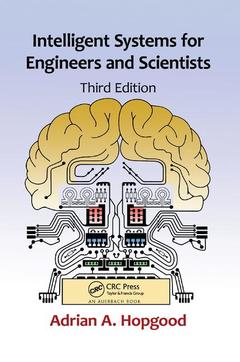Intelligent systems for engineers and scientists (3rd Ed.)
Auteur : Hopgood Adrian A.

Adrian Hopgood earned his BSc from the University of Bristol, PhD from the University of Oxford, and MBA from the Open University. After completing his PhD in 1984, he spent 2 years developing applied intelligent systems for Systems Designers PLC. That experience set the direction of his career toward the investigation of intelligent systems and their practical applications. After leaving Systems Designers, he spent 14 years at the Open University and remains attached as a visiting professor.
During that period, he also spent 2 years at Telstra Research Laboratories in Australia, investigating the role of intelligent systems in telecommunications. He has subsequently worked for Nottingham Trent University, De Montfort University, and Sheffield Hallam University. Despite assuming senior management positions, he has not lost his passion for intelligent systems. He has recently led the development of an open-source blackboard system, DARBS. His Website is www.adrianhopgood.com.
Date de parution : 09-2018
15.6x23.4 cm
Disponible chez l'éditeur (délai d'approvisionnement : 13 jours).
Prix indicatif 80,69 €
Ajouter au panierDate de parution : 12-2011
Ouvrage de 452 p.
15.6x23.4 cm
Disponible chez l'éditeur (délai d'approvisionnement : 13 jours).
Prix indicatif 167,95 €
Ajouter au panier


